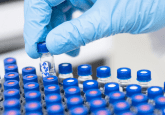Duke-NUS and NUS Medicine introduce Systems Metabolomics Centre to advance precision medicine

The center aims to enhance disease detection and precision medicine using advanced metabolomics to identify biomarkers, improve diagnostics and personalize treatments for various conditions.
With the launch of the Systems Metabolomics Centre (SysMeC), Duke-NUS Medical School and the National University of Singapore Yong Loo Lin School of Medicine (NUS Medicine) (both Singapore) have taken an exciting step forward in medical research. This initiative aims to transform disease detection and treatment through pioneering metabolomics research, laying the foundation for more precise and personalized medicine.
Metabolomics, the large-scale analysis of small molecules called metabolites, provides critical insights into how diseases develop at the molecular level. By analyzing metabolic changes in cells, tissues and entire organisms, researchers can identify biomarkers that predict diseases such as diabetes, cardiovascular disorders and neurodegenerative conditions. The ability to detect these diseases earlier and tailor treatments based on an individual’s metabolic profile represents a major advancement in bioanalysis and precision medicine.
Spanning 600 square meters across two sites, SysMeC has three main goals – to advance large-scale population studies, drive vital metabolic discoveries, and accelerate the development of new analytical technologies.
You may also be interested in:
- Three heads are better than one: OpenAI, Formation Bio and Sanofi collaborate to advance drug development
- A 2-in-1 discovery for diagnosing and treating endometriosis
- Uncovering the metabolic clues of preeclampsia
Its first project focuses on refining ultra-fast diagnostics for cardiometabolic diseases using mass spectrometry. This technique has already identified ceramides as potential indicators of cardiovascular risk, offering more precise predictions than traditional cholesterol tests. The continuing project will utilize an ultra-fast method to analyze ceramide levels in human blood within seconds, enabling researchers to evaluate its effectiveness for monitoring cardiovascular disorders in Singaporean populations.
Alongside this project, SysMeC will also leverage fluxomics – a new and highly accurate approach to measure metabolic activity – opening up new opportunities for understanding conditions like diabetes and inherited metabolic disorders.
“Metabolomics is a game-changer in our quest to bring precision medicine to patients. There’s still so much we don’t understand about how subtle chemical changes in our bodies influence disease. But by combining the strengths of Duke-NUS and NUS Medicine, we are poised to take a global leadership role in this transformative field. Together, we can develop non-invasive tests, detect diseases earlier and guide doctors towards the most effective treatments for each individual,” commented Patrick Tan, Senior Vice-Dean for Research at Duke-NUS.
The establishment of SysMeC positions Singapore as a global leader in metabolomics research. By encouraging collaboration between scientists, clinicians and industry partners, the center aims to develop innovative diagnostic tools, improve disease monitoring and refine therapeutic strategies. As precision medicine continues to evolve, SysMeC’s contributions are expected to enable earlier interventions and personalized treatment plans that improve patient outcomes worldwide.





